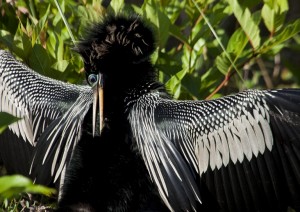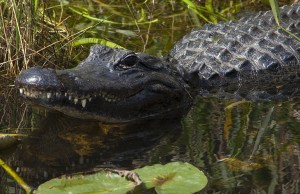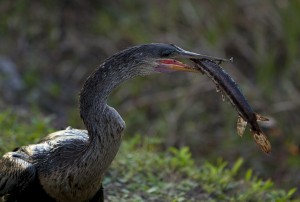Note: Mild winter weather affected an eagle photography trip that I had planned for January on the Mississippi River. The eagles concentrate near dams when the weather gets damn cold. Up to 500 of them will take advantage of fishing in open water below just one dam. We decided to bag it and go in 2013. The eagles won’t know the difference.
This month’s blog (February) can be considered the opposite of my previous blog – The Urban Scene.
I went to Florida with a friend principally to photograph the wedding of a family member of hers, but we decided to take advantage of the trip to do some nature photography, be true to our active lifestyle, and get out of the “cold” weather; hence the Everglades.
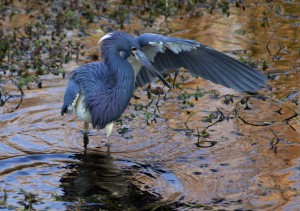 According to their website, Everglades National Park is “…the largest subtropical wilderness in the United States, featuring rare and endangered species. It has been designated a World Heritage Site, International Biosphere Reserve, and Wetland of International Importance, significant to all people of the world.”
According to their website, Everglades National Park is “…the largest subtropical wilderness in the United States, featuring rare and endangered species. It has been designated a World Heritage Site, International Biosphere Reserve, and Wetland of International Importance, significant to all people of the world.”
What is not apparent on the website is that this National Park is extremely close to two urban areas — sandwiched between over 5,500,000 on the Southeast coast of Florida, and nearly 2,000,000 on the Southwest coast.
Not to worry. This is the high season in the Everglades, and though there were a healthy number of people there, it was nothing like Yosemite or Yellowstone with their traffic jams. Indifference to the wilderness? Hard to say, but who cares.
We located in Everglades City, a town that reminds my friend of “Old Florida”. The town was established in 1873, and in 1923, Barron Collier, a wealthy entrepreneur from Memphis, fell in love with the area and began buy land – eventually over a million acres. He drained the swamps and built a town, featuring a bank, a county court house, a laundry and incredibly put in a street car system! Barron agreed to finish the Tamiami Trail, the road from Tampa to Miami, for the state of Florida, which at that time was literally mired in the muck near Everglades City. The legislature was so grateful, they renamed the county Collier County as his namesake.
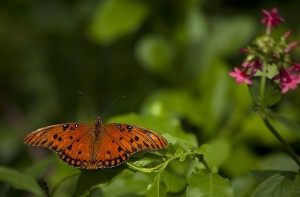 We stayed at The Ivey House, which features the old barracks built for Tamiami Trail workers, and now remodeled. The communal toilets, showers and washbasins still survive in what is now called “The Lodge”.
We stayed at The Ivey House, which features the old barracks built for Tamiami Trail workers, and now remodeled. The communal toilets, showers and washbasins still survive in what is now called “The Lodge”.
Why there? Because the Ivy House is owned by the same group that owns Everglades Adventures, a kayaking and canoeing company that rents boats and conducts tours into the backcountry.
Here is a tip to help those with limited time experience the best places in the Everglades to get close to wildlife:
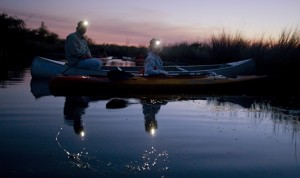 • Take a sunset/night guided kayak tour with Everglades Adventures. Half of the trip though the mangrove tunnels is in the late afternoon, and the other half is returning with headlamps. In the open areas, we turned off the lights and experienced a starlit canopy where we picked out constellations and sat motionless in awe.
• Take a sunset/night guided kayak tour with Everglades Adventures. Half of the trip though the mangrove tunnels is in the late afternoon, and the other half is returning with headlamps. In the open areas, we turned off the lights and experienced a starlit canopy where we picked out constellations and sat motionless in awe.
• Go to Shark Valley in the early morning and walk or rent bicycles for the 15 mile (out and back) paved path – highlighted by an observation tower at mid-point. The “straight” side of the path has a canal alongside of it that is loaded with alligators, turtles and many species of birds.
• Get to the Ernest Coe Visitors Center for a great overview of the Everglade history, the pressures on the Park, the wildlife that inhabits it, etc. After this stop, go to the Anhinga Trail boardwalk (fifteen minutes from the visitor’s center) to see close up more amazing species in their natural habitat. I was using a 300mm lens, and sometimes it was too long!
Other sights around Everglades City are the Museum of the Everglades in the historic laundry building, and Chokoloskee Island. Good eats at the Havana Café in Chokoloskee, and at the Camellia Street Grill in Everglades City.
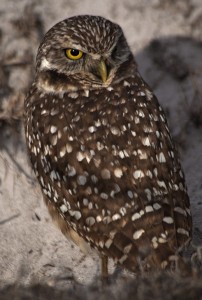 Following our Everglades adventures, we attended the Burrowing Owl Festival in Cape Coral, held at Rotary Park. Many representatives from local and national parks were there, plus other ecologically minded organizations. The festival featured captive animals to view close up, and the organizers took several busloads of people out to where the burrowing owls nest (in burrows of course). These critters are only about 10 inches high. Cape Coral has the largest concentration of these owls in Florida – over 2,500 nests. Although many owls were present at their burrows, a tip came from an owl aficionado: Come in early May when the chicks hatch and see them at the entrance to the burrows.
Following our Everglades adventures, we attended the Burrowing Owl Festival in Cape Coral, held at Rotary Park. Many representatives from local and national parks were there, plus other ecologically minded organizations. The festival featured captive animals to view close up, and the organizers took several busloads of people out to where the burrowing owls nest (in burrows of course). These critters are only about 10 inches high. Cape Coral has the largest concentration of these owls in Florida – over 2,500 nests. Although many owls were present at their burrows, a tip came from an owl aficionado: Come in early May when the chicks hatch and see them at the entrance to the burrows.
It will make for better pictures, and isn’t that what it is all about?
